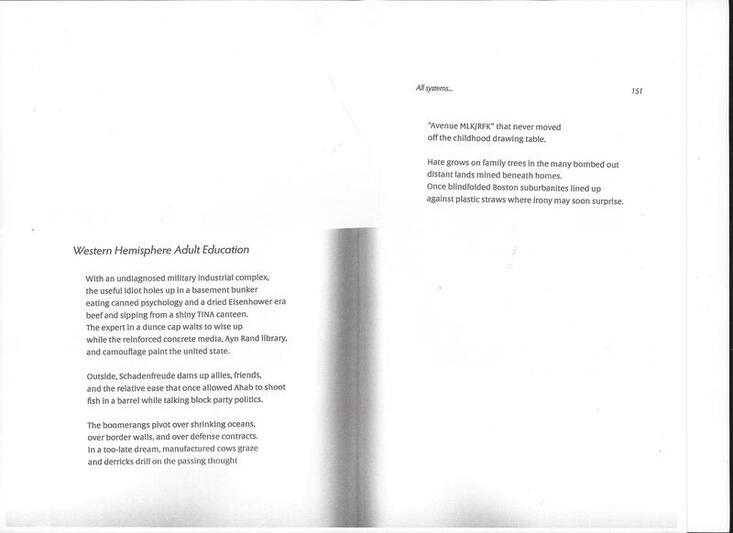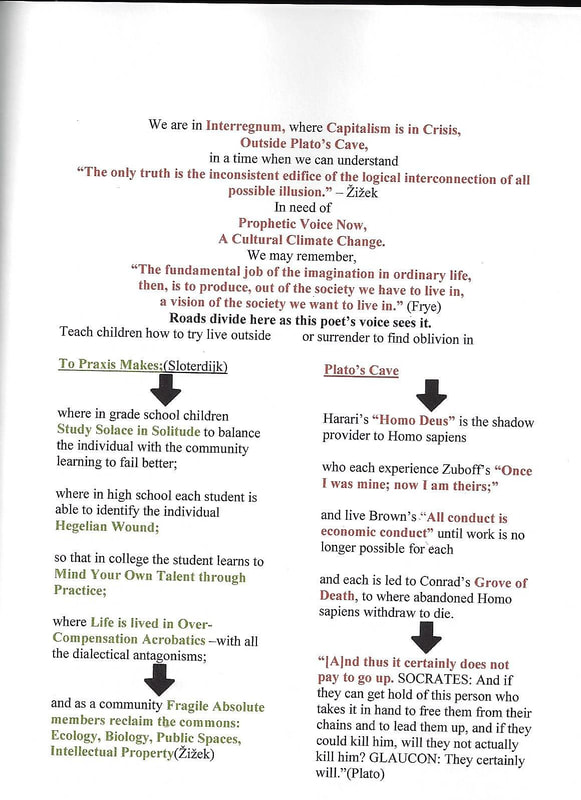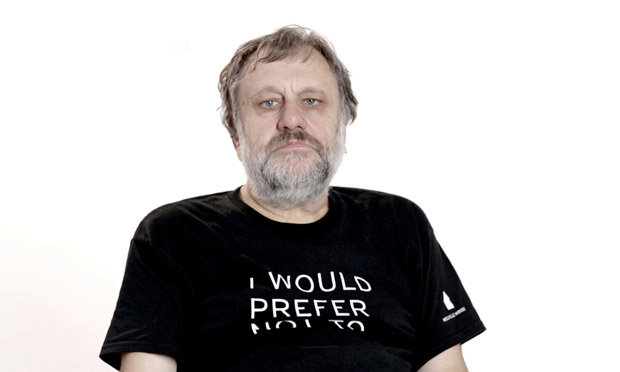|
I am abundantly honored and very pleased to announce that my collection of poems “The Left Behind” has been chosen by Press Americana Poetry Award as winner for 2020.
0 Comments
https://theredwheelbarrowreview.com/practitioner-joy-canned-goods/
BREAKING NEWS/UPDATES POETRY
Practitioner Joy: Canned Goods AUGUST 12, 2020 With all that’s going on these days—pandemics, protests, riots, elections—it serves to reason that taking a pause to get one’s bearing is a wise move. The question then becomes, how and where to pause? Should one sit in silence and meditate, attend church to pray, or maybe take a walk? These are all viable options. Another choice is to sit and read, and read slowly, contemporary poetry that brings one out of the cognitive dissonance that is the zeitgeist called 2020. If you’re not feeling a bit anxious you are either blessed or numb. Use poetry as medicine. Rich Murphy’s poem “Canned Goods,” is an excellent jumping-off point to reclaim your spirit from the whirlwind called 2020. Eating self-esteem from a can, the need to fill a hole gnaws when multimedia pave over farms and gardens with confetti to starve couch potatoes and anybody sprouting a spirit. The first stanza is ripe with meaning. Television, social media, and smartphones feed us canned messages that are psychologically designed to trap each individual in the prison of egotistical desire. The hole that gnaws yearns for the freedom that has been sacrificed upon entering the prison of self-identity. By paving over farms and gardens with confetti to starve those stuck to electronic screens of technology, multimedia starves the spirit that transcends technology. Technology craves life. Captivating the individual in a psychological web of personal desire is an attempt to deprive the spirit of the life that sustains it. Spirit lives. Technology craves. That’s one way to read the opening stanza. There are, of course, others. The point is that in reading the poetry of Rich Murphy the reader realizes they are not imprisoned in the prison of a technological society that would reduce the individual to a statistic rather than allowing them to dance, with creation itself, in the gardens and farms that constitute the human relationship to nature. The final stanza is a call to action: At the nipple for planetary homelessness, the recent refugee, also on the border to second nature, looks back ashamed, embarrassed to have been a member. The prisoner is now refugee who has been fighting like a junkie for its place at the nipple of technology. Exhausted and momentarily aware of the addiction that binds them, the refugee pauses and looks back in shame. Contrary to popular belief, shame is not shameful. It can be a catalyst for healing, for reclaiming the spirit that is natural to human life. Shame can show one back to the farms and gardens where we individuals are not alone but, instead, surrounded by the spirit of living. Again, that is one way to read “Canned Goods.” Poetry, by nature, is open to interpretation. I would suggest, however, that all readers will come away with a similar sense of spirit the poem points to, like the moon pointing to the sun at the midnight of the soul. The human spirit is in danger of being covered-up, starved, and suffocated if the individual fails to nourish as the healthy citizen nourishes its community. This is just one poem in the Rich Murphy’s collection Practitioner Joy. I urge you do get a copy and read, slowly, time and again. THE RED WHEELBARROW REVIEWWHERE WORD MEETS SPIRIT BREAKING NEWS/UPDATESOn Rich Murphy’s Practitioner JoyAUGUST 1, 2020That we are at a crossroads in human history is plain to see. It is up to each one of us, I would contend, to choose which path he or she will go down. What we have been taught in school, by our parents, and by tradition is important when we it comes to making this choice. But it is not enough. We must investigate our hearts to intuit the correct path. However, we do not have to turn inward alone, for we are not the isolated individual of Hobbes, Nietzsche, and the likes. We are humans and, as such, possess the ability to be in communio with others by the use of language. Each of us, then, can employ language, whether it be visual art, music, mathematics, science, philosophy, or literature, as a guide in the search for meaning. For we now stand at a crossroads where we must answer the question: What is it to be human? In giving an answer, no matter what it is, each will contribute to the truth that is to be found in human nature. If we lose the grip on the question at hand, we are in danger of forfeiting our humanity. We must keep the grip, but we must hold-on loosely. When the grip becomes too tight, as it has through the idioms of scientific reductionism as it has been employed in social and psychological sciences, we allow ourselves to be defined by our creations; in the mirror we see the reflection of human technology and the economic systems that drive it, staring back at us as our reflection. Is this what it is to be human? Rich Murphy understands what is at stake. Heidegger wrote, “To be a poet in a destitute time means: to attend, singing, to the trace of the fugitive gods. This is why the poet in the time of the world’s night utters the holy.” There can be little doubt that we are in a destitute time. And we are at a crossroads. Rich Murphy’s book of poems, Practitioner Joy, may serve as a candle in a moonless night, for the poet speaks best of the ineffable aspects of our humanity. Let us listen to the poet’s song. Over the next weeks and months (a new post every week or two), I will be sharing my thoughts on the poems in Practitioner Joy. I urge you to purchase a copy and ruminate along with me. Maybe together we can help one another answer the question “What is it to be human?” In doing so, we can then each make a choice, alone but not, on which road to take. Please join me on this journey. Stay tuned… https://theredwheelbarrowreview.com/on-rich-murphys-practicioner-joy/ CROSSROADSHUMAN NATUREPOETRY |
Archives
May 2024
Categories |



 RSS Feed
RSS Feed